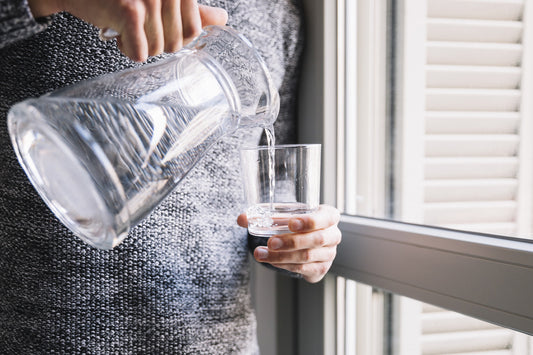Water is the essence of life, and for many, it's sourced directly from the ground through wells. But how do we ensure this water is clean, safe, and tastes good? Enter the well water filtration system. Let's dive deep into understanding this essential household system.
Introduction to Well Water Filtration Systems
Have you ever wondered how the water from deep within the earth gets to your tap crystal clear and free from contaminants? The hero behind the scenes is the well water filtration system. It's not just about pumping water; it's about ensuring that every drop is pure and safe for consumption.

Image by Freepik
The Importance of Filtering Well Water
Health Benefits
Unfiltered well water can contain harmful bacteria, viruses, and other contaminants. A good filtration system ensures these are removed, safeguarding your health and that of your loved ones.
Prolonged Appliance Life
Minerals and sediments in unfiltered water can damage appliances over time. By filtering out these elements, you not only get cleaner water but also extend the life of your appliances.
Key Components of a Well Water Filtration System
Submersible Pump
This is the heart of the system, drawing water from the ground and pushing it through the filtration process.
Pressure Switch
Regulates water pressure, ensuring a consistent flow through the filtration components.
Well Tank
Stores filtered water, ensuring a constant supply even when the pump isn't running.
Pressure Relief Valve
A safety feature that releases excess pressure, preventing potential system damage.
The Filtration Process: Step-by-Step

Image by Freepik
Sediment Filtration
First, water passes through a sediment filter, trapping larger particles like sand and silt.
Carbon Filtration
Next, a carbon filter removes organic compounds, improving taste and eliminating odors.
Reverse Osmosis
This stage uses a membrane to remove dissolved salts, metals, and certain chemicals.
UV Purification
Finally, UV light kills bacteria, viruses, and other pathogens, ensuring the water is biologically safe.
Maintenance Tips for Optimal Performance
Regularly check and replace filters, inspect the system for leaks, and schedule annual professional check-ups.
Signs Your Filtration System Needs Attention
Decreased water pressure, changes in taste or odor, and visible sediment are all indicators that your system may need maintenance.
Choosing the Right Filtration System for Your Home
Consider factors like water quality, household size, and budget. Consult with professionals to find the best fit.

Image by Freepik
Conclusion
A well water filtration system is more than a luxury; it's a necessity for those sourcing water from the ground. By understanding its components and maintenance needs, you can ensure a safe and tasty water supply for years to come.
Frequently Asked Questions
How often should I replace my filters?
It depends on water usage and quality, but generally every 3-6 months.
Can I install a filtration system myself?
While some DIY enthusiasts might manage, it's best to consult with a professional.
How do I know if my well water is safe?
Regular testing can provide insights into water quality and any potential issues.
What's the difference between a softener and a filter?
A softener removes hardness minerals from water, while a filter removes contaminants.
Do all homes with wells need a filtration system?
While not mandatory, it's highly recommended for health and safety reasons.
People also search for Hot Water Dispensers





